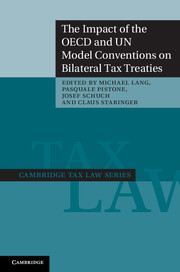Book contents
- Frontmatter
- Contents
- Contributors
- Preface
- Table of cases
- Table of statutes
- General report
- 1 Argentina
- 2 Australia
- 3 Austria
- 4 Belgium
- 5 Brazil
- 6 Canada
- 7 Chile
- 8 China
- 9 Colombia
- 10 Croatia
- 11 The Czech Republic
- 12 Estonia
- 13 Finland
- 14 France
- 15 Germany
- 16 Hong Kong
- 17 Hungary
- 18 India
- 19 Italy
- 20 Lebanon
- 21 Liechtenstein
- 22 The Netherlands
- 23 New Zealand
- 24 Norway
- 25 Peru
- 26 Poland
- 27 Portugal
- 28 Romania
- 29 The Russian Federation
- 30 Serbia
- 31 Slovakia
- 32 Slovenia
- 33 Spain
- 34 Sweden
- 35 Uganda
- 36 The UK
- 37 The USA
- Index
- References
29 - The Russian Federation
Published online by Cambridge University Press: 05 November 2014
- Frontmatter
- Contents
- Contributors
- Preface
- Table of cases
- Table of statutes
- General report
- 1 Argentina
- 2 Australia
- 3 Austria
- 4 Belgium
- 5 Brazil
- 6 Canada
- 7 Chile
- 8 China
- 9 Colombia
- 10 Croatia
- 11 The Czech Republic
- 12 Estonia
- 13 Finland
- 14 France
- 15 Germany
- 16 Hong Kong
- 17 Hungary
- 18 India
- 19 Italy
- 20 Lebanon
- 21 Liechtenstein
- 22 The Netherlands
- 23 New Zealand
- 24 Norway
- 25 Peru
- 26 Poland
- 27 Portugal
- 28 Romania
- 29 The Russian Federation
- 30 Serbia
- 31 Slovakia
- 32 Slovenia
- 33 Spain
- 34 Sweden
- 35 Uganda
- 36 The UK
- 37 The USA
- Index
- References
Summary
The relevance of the OECD and UN Model Conventions and their Commentaries for the interpretation of Russian tax treaties
Introduction
The tax treaty network of the Russian Federation is broad and at present comprises seventy-eight treaties in force (as of January 2011). Two of the treaties, those with Japan and Malaysia, were concluded by the USSR in 1987 and 1988 respectively, and were on the whole based on the 1977 OECD Model Tax Convention on Income and on Capital (OECD Model). As a legal successor of the USSR, Russia continues to apply these agreements; however, all other Soviet double taxation conventions were renegotiated by Russia. The country was especially active in the negotiation process from 1994 to 2000, when between five and fourteen treaties were concluded per year. The main reason for such enthusiasm was the attempt of a newborn state system to be integrated into the world's community as soon as possible. It is no surprise that in the 1990s in the State Duma it was believed that the primary purpose of negotiating the treaties was the reciprocal encouragement of investments. In time a better understanding of the nature of tax agreements developed. It has become obvious to the Russian authorities that tax treaties do not necessarily encourage investment. Nowadays, double taxation conventions are considered as the main tool to prevent double taxation, as well as double non-taxation.
Since 2000, Russia has not concluded as many double taxation conventions as it had in the 1990s. In 2008 and 2009 there was not a single new agreement. Furthermore, the Main Directives of Russian Tax Policy for the years 2010–12, adopted by the government in 2009, do not touch upon double taxation issues and international cooperation in this sphere at all. The possible reason is the broad scope of the existing treaties. Russia enjoys agreements with practically all its main trading partners.
- Type
- Chapter
- Information
- Publisher: Cambridge University PressPrint publication year: 2012



